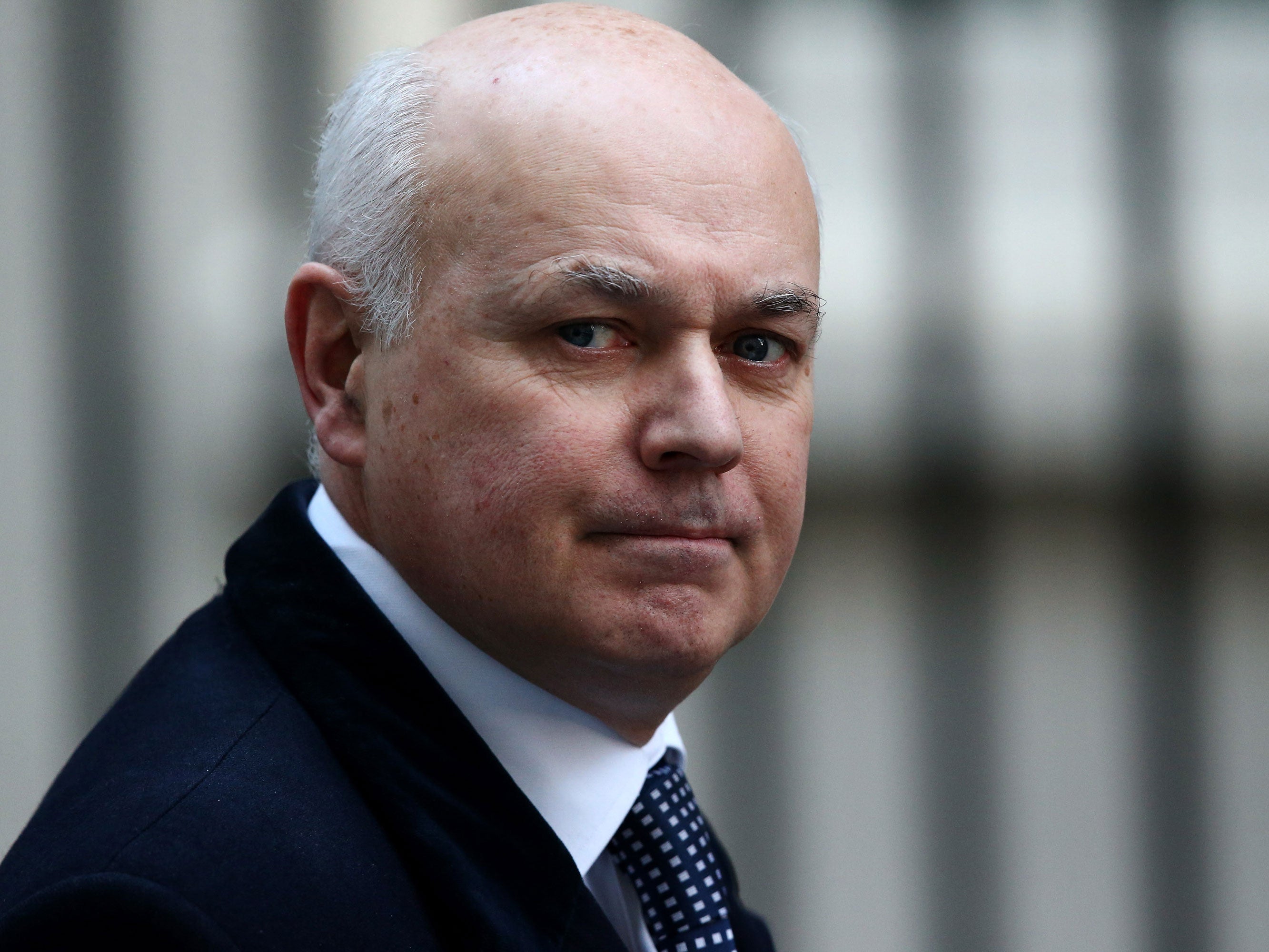If David Cameron really wants to help the poor, why hasn't he fired Iain Duncan Smith?
Was George Osborne right when he said that Duncan Smith is ‘just not clever enough’?


The greatest surprise in David Cameron’s post-election reshuffle was the reappointment of Iain Duncan Smith as Work and Pensions Secretary. I do not mean to be personal about Duncan Smith. I have a higher opinion of him than most people do. As one of the leaders of the Conservative eurosceptic rebels when John Major was Prime Minister, he was sharp, well-informed and helpful to journalists. He turned out not to be up to the task of party leader – few people are, as the Labour Party is now discovering. But after he was ousted he was dignified and loyal, dedicating himself to the cause of getting the Conservatives to take poverty seriously, which is a noble one.
As it turned out, he was not up to the task of welfare reform as a Cabinet minister either. Incidentally, I have been reading Nick Thomas-Symonds’s biography of Clement Attlee, which contains the original anecdote of Attlee’s dismissive comment to “one of his ministers” whom he asked, “Don’t you think you ought to resign?” When the victim asked what was wrong, Attlee is said to have replied: “Nothing, lad, except that you don’t measure up to the job.” This is less terse than the version usually attributed to him.
I wouldn’t expect Cameron to speak to Duncan Smith in those terms – although Matthew d’Ancona’s book about the Coalition government, In it Together, says that George Osborne’s view is that Duncan Smith is “just not clever enough”. But I did expect him to be moved, not primarily because he doesn’t measure up to the job, but because it would allow Cameron to ditch universal credit, the grand simplifying reform of the benefits system that everyone knows is never going to happen.
So far, the best thing to be said about universal credit is that it doesn’t affect many people, as it is still being “rolled out” in “pilot schemes”. Unlike Andrew Lansley’s NHS changes, another grand simplifying reform that was a crock of rubbish in practice, little harm is done by pretending that universal credit is coming, somewhere over the rainbow. Cameron knows perfectly well that it will never be implemented as intended; the Treasury knows it; No 10’s own civil servants gave up on it long ago, hence the joke about it being known as “universal cred” because the IT isn’t working.
Perhaps the Prime Minister still believes that it is a harmless mirage, useful for distracting from present embarrassments. Goodness knows there are enough of those.
The discovery last week of fake case studies, purporting to be real people, in a Department of Work and Pensions leaflet was a stinker. Duncan Smith’s speech yesterday was a feeble attempt to change the subject, but it didn’t work. There was no new policy in the speech and he had to explain the fabricated quotations in television interviews (“that sort of thing doesn’t happen – it happened this one time”).
Of course, welfare reform is the one task in government that most resembles that of Sisyphus. Every morning Duncan Smith must get to his office to discover that the boulder he had pushed up the hill the day before was back outside Caxton House. But to give a speech, after more than five years in the job, observing that sickness benefit payments have not gone down as much as we would like them to do is a cry for help. It is easy to observe that the number of claimants rose steeply in the early 1990s – and that this cannot have reflected a real increase in the prevalence of sickness and disability – but that insight doesn’t make it any easier to help people to get better, or to get jobs.
The same lack of intellectual curiosity applies to the rise of food banks. It may seem unlikely that they reflect an actual increase in severe poverty or a previously unrecognised reservoir of malnutrition. But you would have thought that a government that cared about poverty would exert itself to find out why people go to food banks and to try to do something about it. Instead, when it is suggested that misapplied benefit sanctions might be a cause, I am told that Cameron defends them. He says that sanctions are only put in place by an independent decision-maker; you can appeal; it is reviewed. He accepts that they can be made to work better, but insists that people do not pay their taxes so that other people can “swing the lead”.
Now is the time, when job creation is strong, to try to do something about people who have been shut out of the labour market for a long time. The trouble is that everyone who looks at welfare dependency knows that effective reform costs more in the short term, because it needs intensive and personal support. But the Treasury is always – rightly – sceptical of schemes that offer long-term savings for more expense today, so it requires real clarity, drive and leadership to make change happen.
You would have thought that Cameron, who wants welfare reform to be one of his legacies, would put someone in the job who could make it happen. But no. Instead of genuine welfare reform we got cuts in tax credits, announced by the Chancellor. These cuts will mostly hit the working poor and reduce the incentive to work. They directly contradict all that one-nation, pro-poor rhetoric that Cameron used to spout and that Duncan Smith still does. Not many people remember, but in 2006 Cameron asked Conservative Party members to vote in a “referendum” to endorse a statement of aims and values that included: “The right test for our policies is how they help the most disadvantaged in society, not the rich.”
As long as Duncan Smith stays in post – but more importantly, as long as the Government runs a welfare policy driven by the need to cut public spending rather than genuinely trying to end welfare as we know it – those words are going to ring hollow.



Join our commenting forum
Join thought-provoking conversations, follow other Independent readers and see their replies